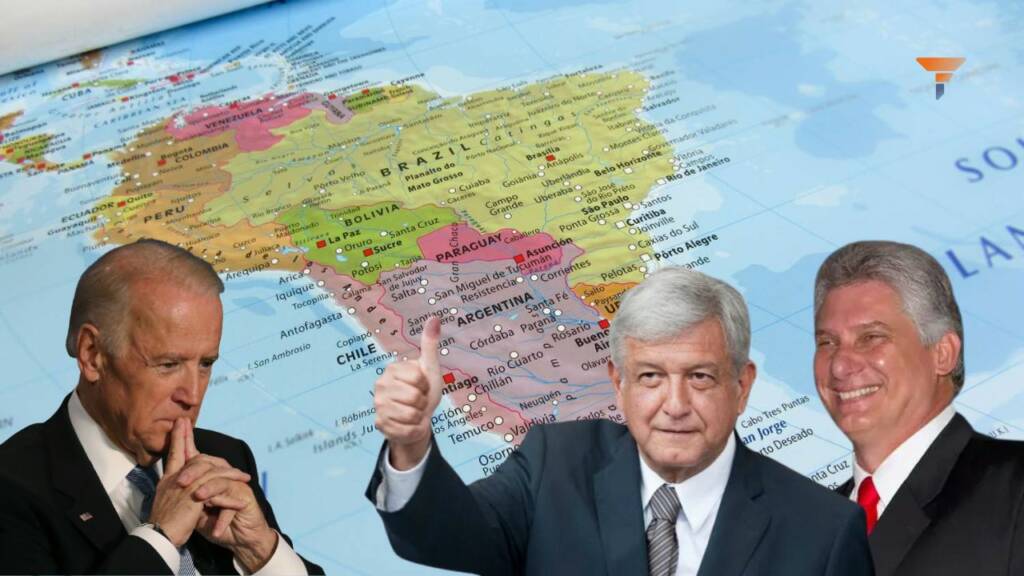sanctions on CUBA: More than sixty years ago, President John F Kennedy enacted Proclamation 3447. Further, it imposed an embargo on all trade with Cuba in order to stop the growth of so-called Sino-Soviet Communism.
Lester D Mallory, the assistant secretary of state, wrote in an April 1960 memo, “Every possible means should be undertaken promptly to weaken the economic life of Cuba.”
The goal of the Kennedy administration was clear: “To bring about hunger, desperation and overthrow of the government.”
However, the times of despair for Cuba may be coming to an end. Latin America is uniting against the sanctions on Cuba. Countries in the region are increasingly embracing the Caribbean nation as an ally and trading partner.
Sanctions on Cuba
The consequences of the US embargo are undeniable. Cruise ships, cultural exchanges and educational groups that used to power the main industry on the island, are now outlawed. Moreover, all remittances to Cuban families through Cuban companies and their affiliates are now prohibited. Thus, this has left millions of people destitute.
The export of medical technology with US components is off-limits. It has caused a persistent lack of basic medication. Even the internet is not available to Cubans. They cannot use any of the popular communication platforms like Zoom, Skype, Microsoft teams due to the embargo.
Undoubtedly, the US embargo has had far-reaching effects on all aspects of life in Cuba.
Read More: Mexico’s fight against gun trafficking takes it to a US Court
Latin America is uniting
Marcelo Ebrard, Mexico’s Foreign Minister, has announced that President Andrés Manuel López Obrador has accepted an invitation to host a summit of progressive Latin American countries. Surprisingly, it will involve Cuban president Miguel Diaz Canel.
Ebrard specified that the nations likely to be invited include Argentina, Brazil, Colombia, Cuba, Venezuela, Bolivia, Chile, and Honduras.
Ebrard reiterated President AMLO’s pledge to spearhead a global effort to terminate the U.S. embargo against Cuba. Even advocating for this cause at forums like the G-20, the Community of American and Caribbean States (CELAC) and even the European Union.
AMLO has called for the termination of the economic, commercial and financial embargo that has been imposed on Cuba for over sixty years. In a recent meeting with Cuban President Miguel Diaz Canel, AMLO said, “As a sign of goodwill and that all the countries of the Americas are willing to join forces, I consider and express with respect that the US government should lift, as soon as possible, the unjust and inhumane blockade of the Cuban people.”
Not only Mexico, but Columbia Vice-President Francia Marquez Mina has also reiterated the same stance on the unjust sanctions on Cuba. The Colombian Vice president has called for Cuba to be taken off the list of countries that sponsor terrorism. She cited their role as a mediator between Colombia and Venezuela.
Read More: Nazis are living normal lives in Argentina since 1945
Francia said, “It’s not fair that a country like Cuba, which has contributed so much to peace in Colombia, is part of the [US] list of countries that support terrorism. Today, from Havana, I show my support for this island nation so it is taken off said list.”
Changing geopolitics
Further, the summit of progressive Latin American countries is going to oppose US sanctions on Cuba. It won’t be surprise if they sign several trade deals with Cuba negating the effects of US sanctions.
The challenge to US sanctions on Cuba is part of a larger shift in Latin America’s attitude toward the US. The region has become increasingly critical of US economic and foreign policy, and has sought to increase its independence from Washington’s influence.
Also, it is an important development in Latin America’s relationship with the US. As Latin American countries continue to embrace Cuba, the US’s long-standing policy of economic sanctions may become increasingly difficult to maintain.
